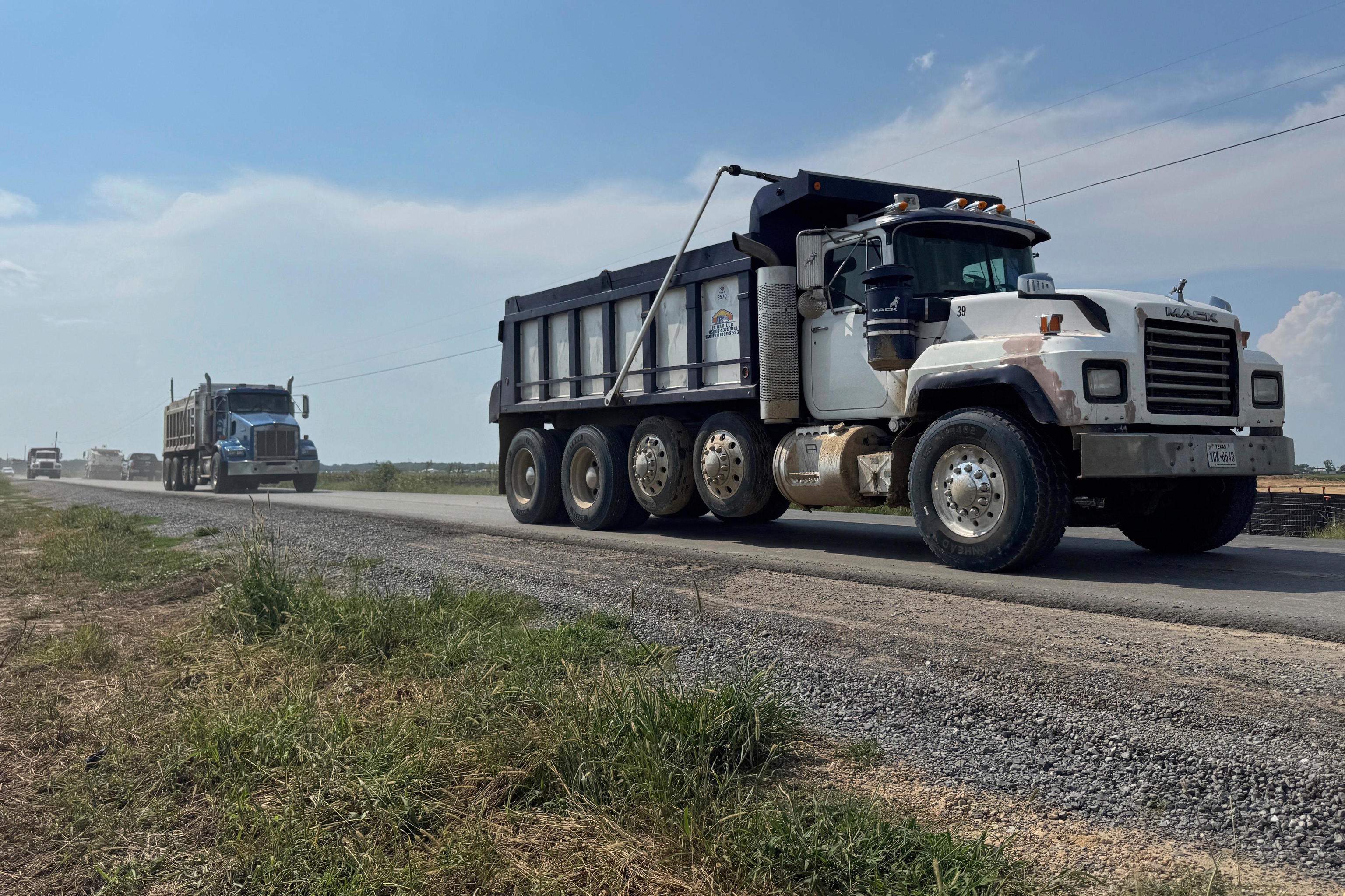After a few weeks of pause, the President of the United States, Donald Trump, has once again shaken international trade on Thursday with announcements of additional protectionist measures. Hours after meeting with the presidents of Turkey and Pakistan at the White House, Trump took to his social media to announce additional tariffs on kitchen and bathroom furniture manufactured abroad. He will also impose a 100% tariff on patented pharmaceutical products. And large vehicles, especially heavy trucks. In all cases, citing national security reasons.
"To protect our large manufacturers of heavy trucks from unfair external competition, starting on October 1, 2025, I will impose a 25% tariff on all trucks (big ones!) manufactured elsewhere in the world. Therefore, our large manufacturers, such as Peterbilt, Kenworth, Freightliner, Mack Trucks, and others, will be shielded from the onslaught of external disruptions. We need our truckers to enjoy good financial health, for many reasons, but above all, for national security reasons!" he stated in a first message.
"Starting on October 1, 2025, we will also apply a 100% tariff to any branded or patented pharmaceutical product, unless a company is building its pharmaceutical manufacturing plant in the United States. "IS BUILDING" will be defined as "under construction." Therefore, no tariff will be applied to these pharmaceutical products if construction has already begun," he said in a second message. Generic drugs should remain exempt, in principle.
The pharmaceutical issue is one of the president's major obsessions. After discovering that medications are much more expensive in the US than in Europe or Asia, the president has not blamed the US system, companies, or insurers, but rather the rest of the world. He does not believe that they are cheaper there because of the healthcare system, or because legal limitations are placed on prices in negotiations at the highest political level. Instead, he thinks it is due to some kind of conspiracy and that the US pays more because others pay less. So, he wants to balance the scales one way or another. This summer, he had already imposed a 15% tariff on medications and products from the EU, but the so-called 'reciprocal tariffs' he imposed in early April, then halted, and later began to define country by country exempted the sector, as he had already warned that there would be something specific and very high.
The third sector, more unexpected, is furniture, especially upholstered furniture, also citing... national security reasons. "We will impose a 50% tariff on all kitchen cabinets, bathroom vanities, and related products starting on October 1, 2025. Additionally, we will apply a 30% tariff on upholstered furniture. This is due to the massive influx of these products into the United States from other countries. It is a very unfair practice, but we must protect, for national security and other reasons, our manufacturing process."
Earlier this year, the Executive had already opened a national security investigation into pharmaceutical product prices, but it is not clear from today's message whether the new decision is a result of that investigation or not.
Today's announcements come after a small storm among American farmers over the aid announced to the Argentine economy. Lines of credit and promises from the US Treasury to buy debt have allowed the Executive of Javier Milei to lift restrictions and sell huge amounts of soybeans to China, the world's largest consumer. Up to a million tons at once. And that allows Beijing not to give a dollar to Washington.
Last year, China bought soybeans worth over $12.5 billion, more than 50% of the total, but this year it has been progressively decreasing, reaching zero right now (although it is true that China usually buys from Latin America until summer, which harvests earlier, and only turns to the northern product in the last months of the year).
The decline in purchases is a direct retaliation for the trade war launched by Trump, and because suddenly there are cheaper options, such as Argentine, ironically financed by the US. The country that has been saying for seven months that the rest of the world takes advantage of them, which decided this week to rescue its most liberal ally. And that paid back the favor by selling to the great rival, at least theoretically, of both.
